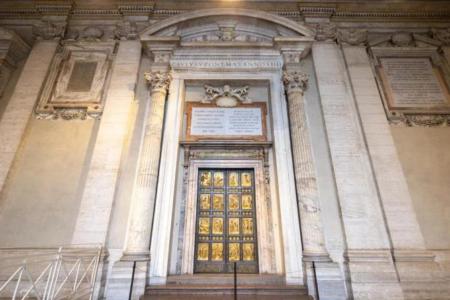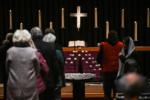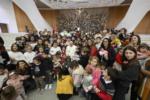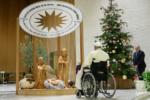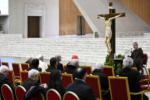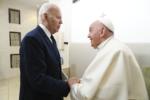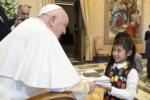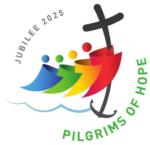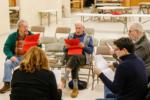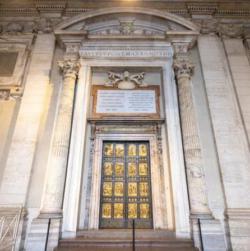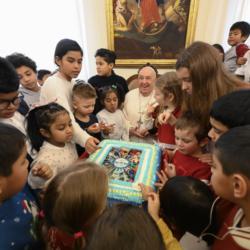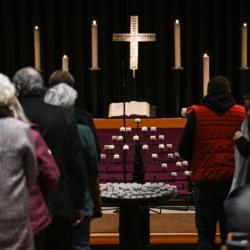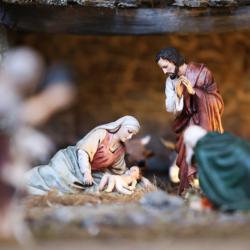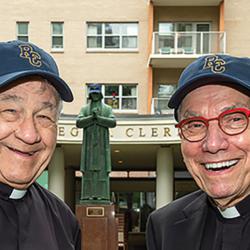St. Katharine Drexel book club explores theology, Black Catholic history
ROXBURY -- The commitment of individuals -- and an entire community -- to foster faith and education is evident in St. Katharine Drexel Parish's Lenten reflection and discussion group.
It began with in-person meetings in 2019, then switched to virtual meetings during the pandemic. But whichever format it takes, it allows participants to learn about Black Catholic history, develop their own theology, and talk about their spiritual journeys.
Participants meet every Sunday afternoon during Lent. They usually have about 20 people at each meeting, though they have had as many as 35. The meetings are run by Dr. M. Shawn Copeland, Boston College professor emerita and St. Katharine Drexel Parish theologian in residence.
In a March interview, Copeland said the main point of the group is faith sharing and formation.
"Mostly these are people thinking about their own experience and how God works in their lives," she said.
In past years, the group looked at spirituals and read a book written by Copeland, "Knowing Christ Crucified: The Witness of African-American Religious Experience." In recent months, they read essays from "Uncommon Faithfulness," an anthology of essays about the Black Catholic experience edited by Copeland. The authors featured include professors, historians, religious, and clergy exploring a range of topics, including civil rights, music, liturgy, religious orders, and historical models for race and religion.
The group typically reads an assigned chapter before they meet. Each week, someone offers a summary or presentation about the chapter's topic, and then they break into small groups for discussion.
This year, Copeland invited three doctoral students from Boston College to give presentations: Byron Wratee and Chanelle Robinson of the Department of Theology, and Lauren Warner of the School of Theology and Ministry. Wratee presented the essay on "The Witness of African-American Catholics" by Cardinal Wilton Gregory. Robinson spoke about the chapter by Dr. Diana Hayes about "Faith of our mothers: Catholic womanist God-talk." Warner presented the chapter on communion ecclesiology by Sister Jamie Phelps.
Copeland moderates questions and comments from the participants. Sometimes they ask about factual topics like Church teaching, but most of the discussion is about faith sharing.
"These were interesting topics for people. They could come in on their own experience, reflect on it prayerfully, and think about what their faith means to them," she said.
The readings, reflections, and discussions have given many participants a better understanding of what theology is. The oldest definition, Copeland said, is "faith seeking understanding."
"They hadn't thought about theology as something that developed. They think about theology as something in the past, frozen," Copeland said.
She said one participant "thought how serious it was, and how wonderful it was, that people were theologizing, that people were having a theological reflection on what faith means to them."
Recently, one of them said the readings were helpful for them as they prepared to participate in the National Black Catholic Congress, which is scheduled to take place this July.
"To me that was very heartening. That's the point, trying to continue to provide people with opportunities for learning and expanding an understanding of faith, and understanding the contributions and thinking of Black Catholic theologians, ethicists, and historians to our Church," Copeland said.
Carolyn Caveny, executive assistant to the pastor at St. Katharine Drexel, has participated in the discussion group and sees it as a "natural progression" of the parishioners' values and initiative.
She pointed out that the parish's report on their findings for the Synod on Synodality noted the parishioners' "gratitude for opportunities and occasions for spiritual, intellectual, and cultural nourishment."
"One thing that is well-documented is that education has always been a priority in the Black community in general, and clearly in the Black Catholic community in particular," Caveny said.
She described herself as "a lifelong learner."
"When I have opportunities to reflect, discuss, better understand, and celebrate Black Catholic history, I accept the invitation. Black spirituality embraces me and gives me hope. That's one of the major reasons that I choose to continue to learn. And this Lenten reflection and discussion provided that opportunity for me," Caveny said.
She said she pondered the title of the book, "Uncommon Faithfulness." She said that as a result of the discussions, she has a better understanding and appreciation for what that term means.
"To be faithful is challenging. To be faithful as Black Catholics, throughout 450-plus years of ongoing racism and its evils, is, in my opinion, uncommon faithfulness," she said.
Throughout all that time, she said, Black Catholics "have believed and counted on God's word, and have been open to the leading and guiding of God's Spirit. And for me, that element of hope is life-giving."
Copeland noted that there are many different ways of formation and enhancing one's faith. The discussion group is one example of how to do so.
"That people are able to take an extra bit of time each week to talk about their own prayer, to talk about their own faith life with others, that's a really good thing," Copeland said.
